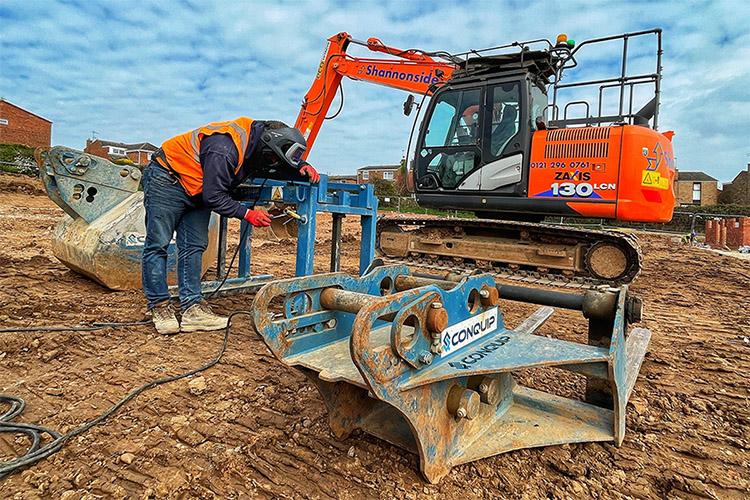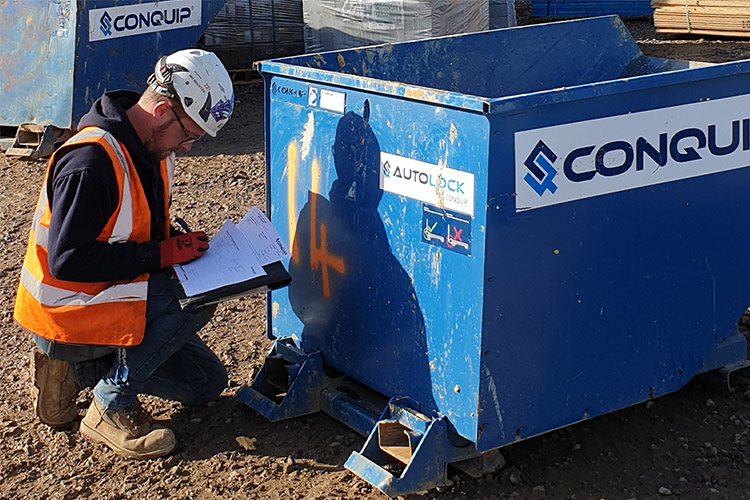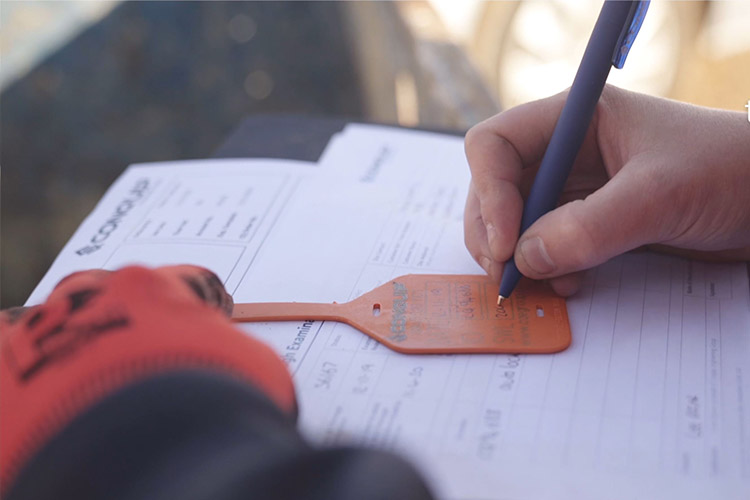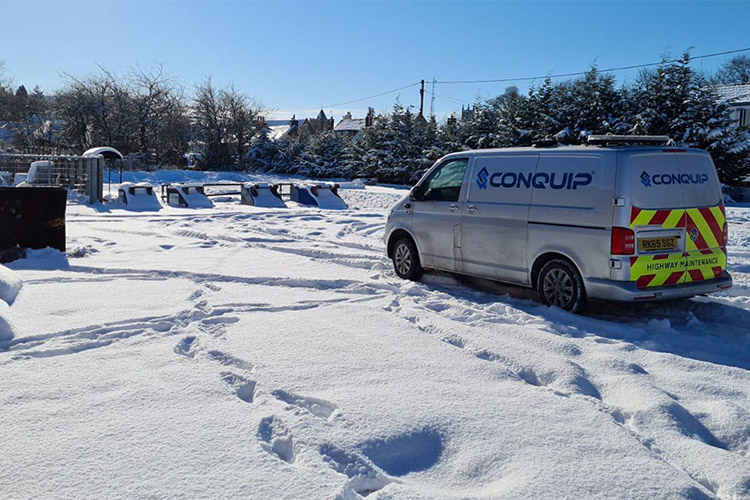The Health and Safety Executive (HSE) encourages regular testing of all work equipment to ensure it is compliant with regulations and safe for use. This was a hugely positive move to achieve safer construction sites, but has it meant that we are only focussed on inspecting when we “have to” or instilled a culture of ticking boxes?
In this article, we examine the importance of equipment inspections, explore the reasons behind bad-practice, and outline how we can help to keep your equipment safe and compliant.
Quick Read
Why are inspections important?
Types of equipment inspections

Why are inspections important?
Equipment should be examined regularly by a qualified engineer or competent person to ensure it is compliant with relevant regulations and save to use on-site.
According to the HSE website, ‘The purpose of an inspection is to identify whether work equipment can be operated, adjusted and maintained safely, with any deterioration detected and remedied before it results in a health and safety risk.’
Inspections keep equipment operational and personnel safe by preventing accidents onsite. There are 3 main reasons why regular checks are beneficial:
Safety
Personnel safety is the main reason behind equipment inspections. Simple daily checks ensure equipment is fit-for-use. Thorough 6-monthly inspections are encouraged for all site equipment, and they are mandatory for any lifting equipment under LOLER legislation.
Repair Costs
By identifying issues with equipment early and rectifying them, it can hugely reduce the repair costs, prevent major re-work, or being forced to replace it altogether.
Equipment Downtime
If regular inspections are not carried out on equipment, minor issues can lead to deterioration and result in major rework being required.

TYPES OF EQUIPMENT INSPECTION
LOLER
Lifting Operations and Lifting Equipment Regulations 1998 (LOLER) inspections cover any lifting equipment, such as, cranes, fork-lifts, lifts, hoists, mobile elevating work platforms, and vehicle inspection platform hoists. LOLER inspections are a legal requirement and must be carried out by a competent person every 6 months.
PUWER
Provision and Use of Work Equipment Regulations 1998 (PUWER) covers the standards of safety for equipment used in work environments. Although PUWER inspections are not a legal requirement, they often constitute to the daily checks that ensure equipment is safe for use.
Have you fallen for the ‘tick-box culture’?
Let’s get real, keeping equipment well-maintained comes at a cost and can be seen as a time constraint. The cost of regular inspections can encourage contractors to seek cheaper ways to get equipment ‘passed’. HSE state this can result in a ‘superficial tick-box approach or even, in some cases, the inspection activity ceasing altogether’.
Another reason the ‘tick-box’ attitude is if the criteria is not specific to the equipment being inspected. Conquip on-site engineers frequently find equipment that has been ‘checked’ or ‘passed’ by external companies, yet it fails our inspection. It highlights an issue of incompetency and prompts the question: If you are going to the trouble of inspecting whether a product is fit-for-use, why aim to simply just pass it without carrying out a proper inspection?
What is needed?
HSE did not put in place regulation to encourage people to just pay for a cheap inspection, so they have a piece of paper that allows them to continue using that equipment. All inspections should be based on how regularly you are using that piece of equipment - 6 months is a ‘guide’ and is a minimum requirement – in certain cases contractors have moved to more frequent inspection cycles, depending on the use of the equipment or site conditions.
Contractors should be taking a proactive approach to testing and certification, documenting the inspection schedule clearly in site-specific Risk Assessments and Method Statements (RAMS). The more organised the approach to inspection, the less last-minute inspections will be taking place when the site team realises that the QHSE representative from the principal contractor is on site tomorrow and there are items that are out of cert. These last-minute inspections are costly, so being organised will save you time and money.
In short, get organised and be proactive about keeping your equipment certified and your operatives safe.
How we can help
Product usage & installation training
Our engineers provide various training courses and on-site coaching so site personnel can use our equipment with confidence and assurance.
‘How to’ videos & animations
We have a library of ‘How to’ videos and animations illustrating how our products work and best-practice usage.
Technical User Guides
Detailed technical user guides are generated for every product in our range. These include product specification line drawings, replacement parts lists, extensive assembly and usage instructions and safety information.
On-site testing and certification
Our experienced and highly trained on-site engineers carry out comprehensive equipment inspections aligned with LOLER and PUWER regulations and legislation. They can provide official certification and organise schedules to return for retesting ensuring all site equipment is compliant and safe for use.

What if my equipment needs rework?
We understand the rigours of construction sites can leave equipment requiring repairs which is why our comprehensive After Sales Support Service offers:
Onsite Repairs
Our vans are kitted out with all the tools and replacement parts to fix equipment onsite, meaning there is no delay waiting for engineers to return.
No Minimum Appointment Times
Taking a little longer to fix? No problem, we will stay until the job is done.
No downtime with replacement hire kit
While our engineers will always attempt to carry out on-site repairs, sometimes equipment needs a visit to our workshop to get it back in working order. Our replacement hire equipment service and FORS Gold Delivery will ensure downtime is kept to a minimum.

Continuous, next-level support for your equipment
Our After Sales Support Service provides the very best advice, care and maintenance in the industry, ensuring your equipment is always safe for use and compliant with LOLER and PUWER regulations.
Same-day servicing
Trained, qualified engineers
No hidden costs
On-site repairs
Parts replacement






